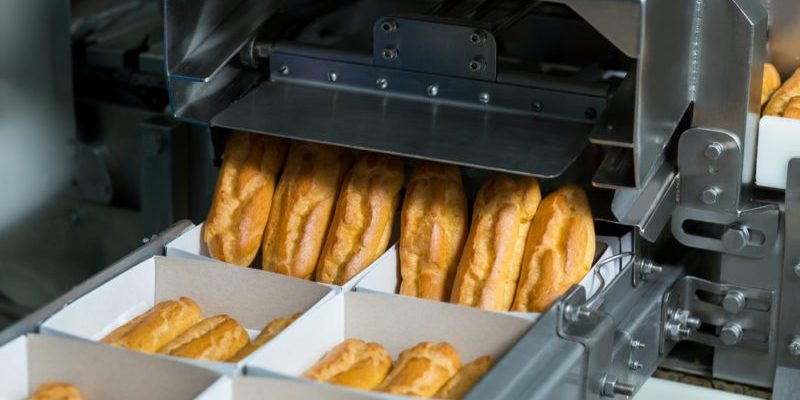Despite the emergence of so many new low-carb diets over the past several years, demand for baked goods has never been higher. Most US consumers eat grain products at least once a week, and nearly all these foods are produced at industrial wholesale bakeries.
While rising demand for bakery products might seem promising, competition in the food and beverage sector remains high, and regulatory standards are more stringent than ever. So, what are the most common obstacles facing bakery owners today? And what are the best strategies for overcoming these problems?
1. Managing multiple wholesale orders efficiently
Many wholesale bakeries accept orders through various channels like phone calls, texts, online order forms, and email. When your company first launched, tracking and fulfilling new orders was easy because you were not receiving them in high volumes. But, as word got around and your presence grew, you soon realized how valuable a centralized tracking system for client orders really is.
A well-designed ERP system for the food and beverage industry provides a robust order management system that lets you track multiple wholesale orders easily. An automated order management solution from EZSoft ensures that your operation can handle hundreds of wholesale orders per day from several distribution partners. ERP order management systems ensure that all your goods are where they’re supposed, promoting smooth and stress-free transactions with your customers every time.
Most food producers report improved customer experience and satisfaction levels. Once you implement an order management system, your retail partners won’t have to pick up the phone and call in or send emails to place new orders. Clients create all orders online after a few clicks. The product requests appear in your production system in real-time, without any data entry or expensive call center environments.
A well-implemented order management system handles more than just new orders. Most solutions allow you to establish internal digital catalogs and synch your existing inventory management system. The integration gives you access to live-time stock levels, ensuring you never run critically low on ingredients and materials. Likewise, order management systems simplify customer invoicing, making goods receipts easier to track while streamlining your merchant payment process.
2. Critically low inventory
Food manufacturers that permit themselves to run critically low on inventory expose their operations to significant problems, namely expensive employee downtime. If you’re still reliant on traditional paper-based forms of inventory tracking that entail spreadsheets and clipboards, you risk missing critical deadlines, wasted materials, needless expenditures, and dissatisfied customers.
Industrial automation solutions like ERP software for the food industry help you cut costs while, at the same time, increasing procedural accuracy and efficiency. Automated inventory management systems let you track your warehouse stock in real-time, so you always know where your inventory levels stand. The instant your inventory needs replenishing, online tracking systems alert your operators. More advanced solutions will automatically reorder stock on your behalf.
3. Brand promotion
Getting the word out about your latest food products is often as strategically demanding as it is expensive. Most bakery owners aren’t marketing specialists, and they’re scarcely IT experts either. Historically, when bakeries wanted to promote their new products, they would host small events and give away free samples to their customers. But with so many new restrictions around public gatherings and regulatory concerns, business owners have been turning to the digital catalogs and linking them to their inventory management systems.
Digital catalogs are particularly effective if your bakery relies heavily on seasonal sales. If your bakery offers a specialty line of Christmas cookies or Valentine’s Day chocolates, you can designate a “holiday” category for these items in your catalog. Inventorying key items online for your customers makes your specialty and seasonal goods easier to locate. This approach exposes your customers to new food products and keeps your brand at the forefront without having to hand out free samples at public gatherings.
4. Limited capital
During the early stages of their development, bakeries tend to run on thin budgets. Operating expenses can add up quickly, even when you have sufficient investment. And without positive cash flow, you’ll find yourself challenged to stay in business for long. ERP systems help to ensure positive cash flow in several ways. Foremost among them, automated inventory management systems empower you to forecast your revenue accurately.
Industrial automated solutions give you deeper insight into your inbound and outbound goods and materials. An ERP system lets you know if you’re falling short of your profit predictions while underscoring the areas where you need to pick up the pace. Are your customers paying on time? Do you have several outstanding vendor invoices? Your enterprise resource planning system informs you straight away. Accurately forecasting your cash flow isn’t easy, but several automated tools help you make essential revenue predictions to keep your business on a positive growth path.
Where can I industrial automation companies near me?
EZSoft is a leading full-service systems integrator of process control systems, manufacturing execution systems (MES), and IT/reporting services in Pennsylvania. We work primarily with the life sciences, food and beverage, chemical, and metal manufacturing sectors.
The food production industry is competitive. How you manage your inventory to overcome these common obstacles determines your success. Find out how an inventory system from EZSoft reduces waste and cuts costs by filling out our online contact form or calling us today at (484) 568-5040.







